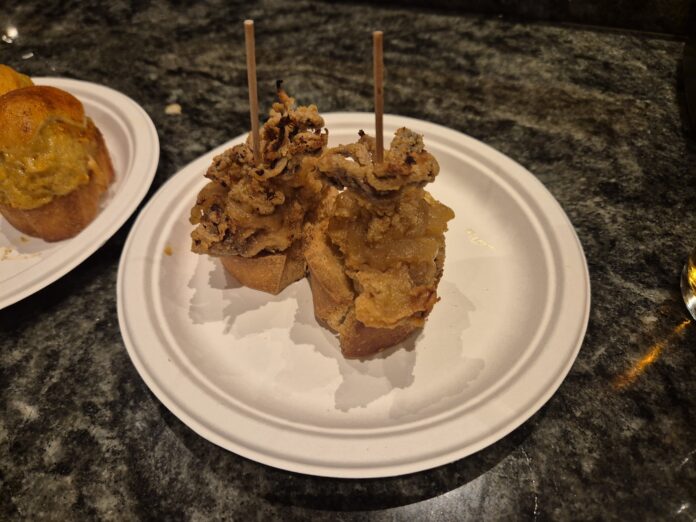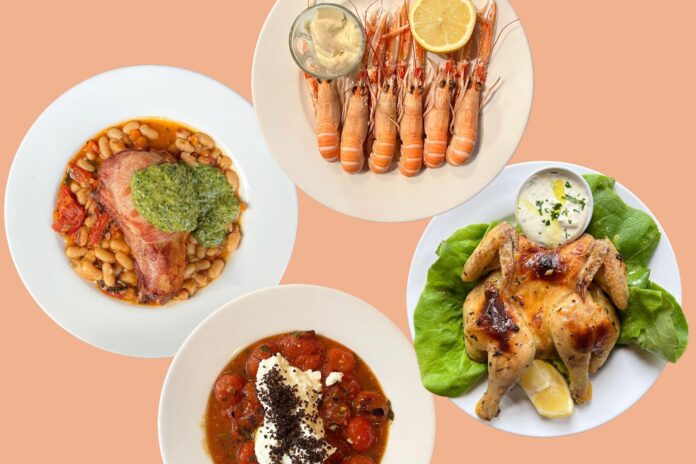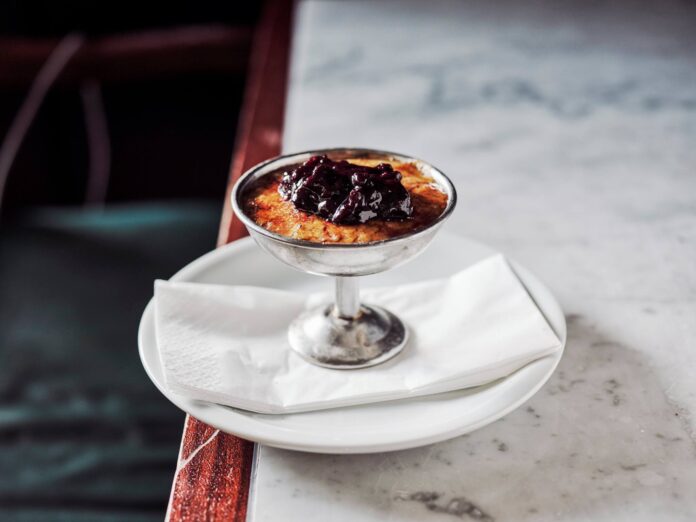Though we’re well aware that the food we eat has a massive impact on our physical health, the importance of diet’s role in our mental health is sometimes less well documented.
According to the Mind UK, ‘’evidence suggests that as well as affecting our physical health, what we eat may also affect the way we feel’’.
Therefore, if you’re keen to address any feelings of low mood holistically, or you simply want to optimise your mental performance throughout the day, it’s important to zero in on your diet to make sure that you’re providing your brain with all the nutrients it needs.
Of course, do bear in mind that a holistic approach to your mental health is best; this thing won’t be fixed through diet alone. If you’re feeling particularly low, rest assured that help is out there; even during these tough times, you can speak to someone remotely regarding your feelings.
But in terms of what you can do for yourself, at home, simply and easily, you diet plays a hugely role in your mood. With this in mind, here are 6 ways to boost your mental wellbeing via your diet.
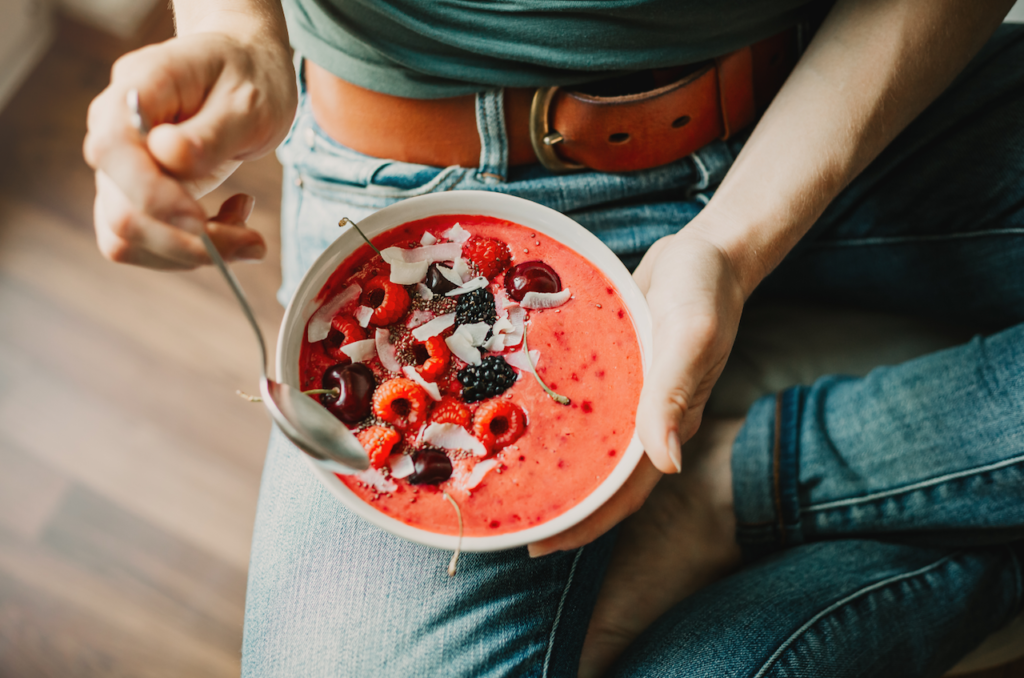
GO FURTHER THAN FIVE A DAY
Though we realise we’re stating the obvious, we’re going to do so anyway; to have your body and mind feeling tip-top and working in harmony, it’s vital that you enjoy a balanced diet to supply your body with all the vitamins, minerals and fibre it needs. This starts with striving for that well-publicised, sometimes criticised 5-a-day, and preferably, going further.
In fact, it’s long been acknowledged by scientists and nutritionists that ‘5-a-day’ isn’t actually a sufficient amount of fruit and veg to truly reap the benefits they provide, but rather, it’s framed as such so it’s realistically achievable.
In fact, we should be consuming at least seven portions of fresh fruit and vegetables a day. Doing so has been linked to a 42% lower risk of death from all causes. Experts also recommend that of the minimum 7 items, the majority should be vegetables.
Don’t let these numbers, ratios and calculations throw you off or discourage you from your healthy eating goals. Instead, a simple trick is to simply add an extra piece of fruit or vegetable to each mealtime. So, throw in some diced banana to your morning bran, some sliced tomatoes to your lunchtime sarnie and a handful of frozen spinach to your curry tonight. Done!

FOODS WHICH RELEASE ENERGY SLOWLY
Feeling low on energy and low on mood seem to go hand in hand, so if you want to regulate both, then experts recommend that you prioritise foods which release energy slowly throughout the day, rather than the jolting, jarring shot provided by caffeine, sugar et al.
Contrary to popular misconceptions, carbs, in moderation, are you friend. The NHS recommends basing meals around starchy carbohydrates such as potatoes, bread, rice or pasta, preferably in their wholegrain versions where possible, for that sustainable energy boost. A little daily dairy and a good amount of beans, pulses and oily fish also contribute to a diet which gives you the right energy levels to tackle your day in the right frame of mind. Nuts, which are high in fibre and protein, also release energy slowly and are a great, healthy snack when you’re feeling peckish.
FOODS THAT MIGHT HELP FIGHT STRESS & ANXIETY
Speaking of nuts, some studies also suggest that certain nuts can help with stress and anxiety. Cashews, in particular, contain mood stabilising vitamins including B6, magnesium, and niacin.
A study found that depression scores in walnut consumers tend to be lower than the general population, too. Other foods have also been shown to have mood-boosting benefits, including beans, seeds and fish. On the other hand, foods that exacerbate low mood and anxiety include sugar, refined grains, alcohol and caffeine.
Researchers have found that the Mediterranean diet has been associated with a significantly lower risk of developing depressive symptoms. Indeed, eating a ‘Mediterranean’ diet rich in different coloured fruits and vegetables will give you the best chance of getting the widest variety of antioxidant and anti-inflammatory phytonutrients your body needs. During the winter months, such a diet is particularly important, giving you vitamins you’d otherwise be getting from the shy, retiring sunlight of the season.
Speaking of sunlight, alongside that wholesome diet we mentioned, regular exercise and a strong support network, many have found that SAD Light Therapy has some uses as a complementary therapy option during the winter months.
The high fibre content of those diets we mentioned (provided by wholewheat pasta and wholegrain bread, and plenty of beans and pulses) is a great way to boost your microbiome, the trillions of microbes that live in your large intestine and which are so important for your health. Speaking of which…
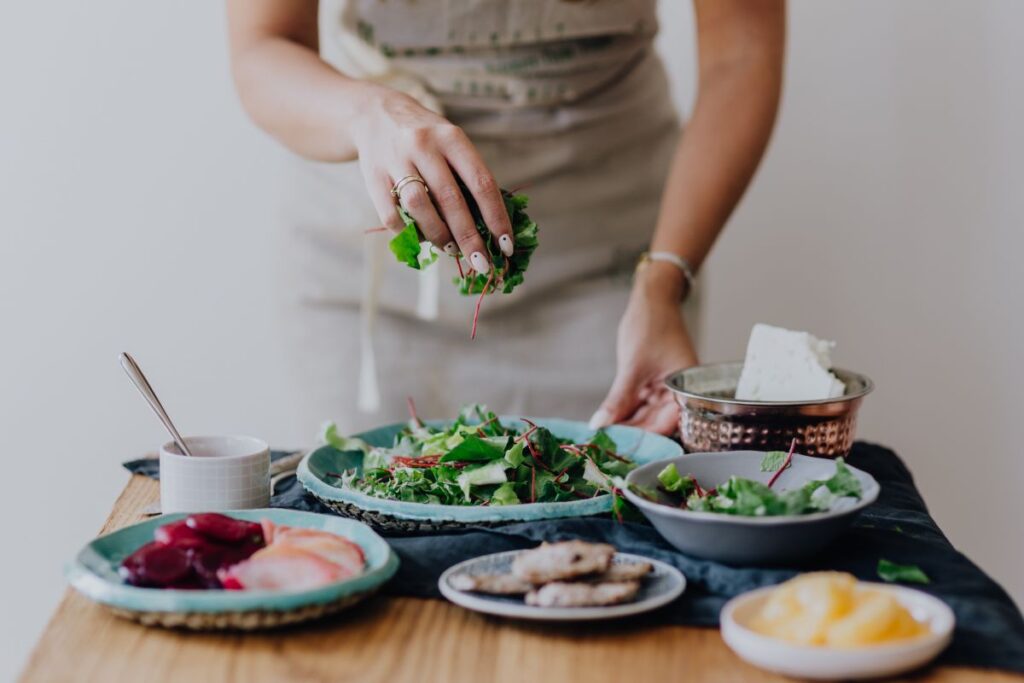
THE POWER OF PROBIOTICS
The power of probiotics has been given some serious air in the news recently. Indeed, just last week, the BBC aired a program named ‘The Truth About Improving Your Mental Health’, which offered some tangible ways in which we can look after our mental health, including shining a light on how our gut health has a huge impact on our mood.
A study shown on the program revealed the role probiotics play in keeping the ‘second mind’ healthy, with participants who took probiotic supplements seeing a 50% improvement in their mood compared to a placebo group.
Some have even suggested that daily use of probiotics may improve cognitive function and boost mood; incredible!
Read: 6 IDEAL ways to improve your gut health
STAY HYDRATED
It’s incredible that something as simple and free flowing as water can have such a huge impact on our health, both physically and mentally. But staying hydrated can allow you to improve sleep quality, concentration and mood while also helping your body to work at its optimum.
If you are someone who often forgets to stay hydrated, consider taking a water bottle or flask around with you at all times – this will help remind you to drink it throughout the day. Try to get into the habit of going to bed with a jug of water next to your bed, then as soon as you wake up, gulp down a couple of glasses of it. If you work in an office, always have a jug of water on your desk.
Go the extra mile and download a drink tracking app that can allow you to set reminders to drink throughout the day. Not only this, but you can also buy water bottles that have built-in water trackers that will allow you to keep an eye on how much water you are consuming. Knowledge is power, people!
TRY A SLEEPY TEA
It’s a very modern affliction; the commonly held belief that a fulfilling and healthy life is one lived at breakneck speed. This couldn’t be further from the truth, with countless studies linking poor sleep hygiene to low mood, and on the flip side, demonstrating a link between routine, quality sleep and improved wellbeing.
What’s more, regularly getting your 7 to 9 hours of quality sleep helps ensure your stress levels remain low.
If you’re struggling to sleep, your diet might be playing a part. As well as steering clear of caffeine, sugar and alcohol in the run up to bedtime, you could also introduce a sleepy tea into your nighttime routine. Look out for ingredients like valerian root, chamomile, and lavender, all of which are said to have mildly drowsy-giving effects.
THE BOTTOM LINE
Though we’re constantly reminded to prioritise self care and to talk openly about our feelings, how many of us can confidently say we’re doing just that? With some simple changes to our diet, we can go some way to boosting our wellbeing.
And if you’re keen to consider this more, check out our article on 5 things you should be doing if you care about your wellbeing while you’re stuck at home.
*This article is not intended to replace medical advice, diagnosis or treatment given by a qualified mental health professional. Instead, this article only provides information, not advice. For any medical enquiries, always consult your GP first*

